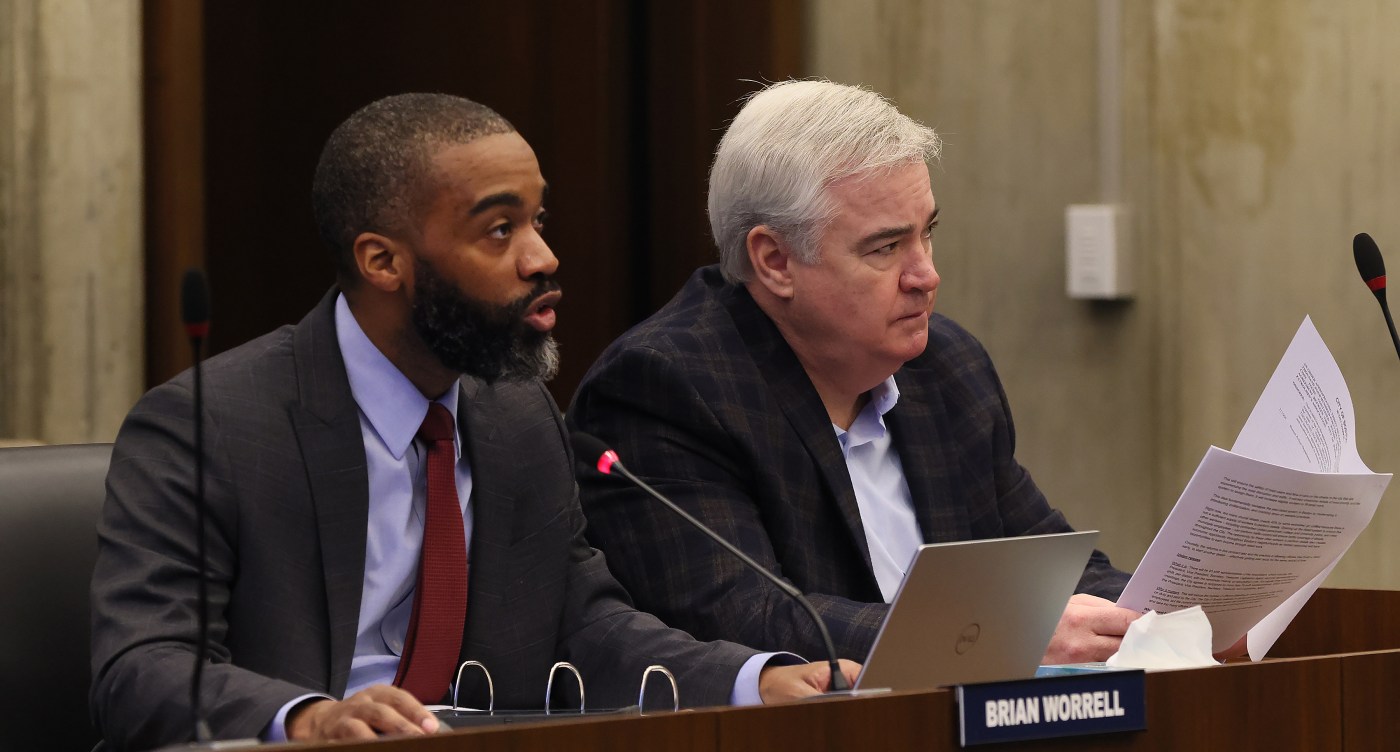
Boston City Council weighing vote on police contract
The city’s new police contract opens the door for civilian flaggers to take on paid detail assignments, now held exclusively by BPD officers, but officials indicated that those lucrative roles will likely go to retired police officers.
The five-year collective bargaining agreement, discussed at a Tuesday City Council hearing and up for a potential vote on Wednesday, includes a number of reforms around paid details, including prioritizing assignments for events with the greatest risk to public safety and boosting stipends to attract more coverage.
One of the more notable reforms, a union concession that has drawn past opposition from the president of the Boston Police Patrolmen’s Association and support from progressive politicians and community members, would allow non-police officers to take on paid detail assignments for the first time.
“We want to implement that as soon as possible,” said Lou Mandarini, labor advisor to Mayor Michelle Wu. “The goal was to end the monopoly on who could perform details.”
Wu said at a City Hall press conference last week that 40% of all details, such as for construction sites and events, are going unfilled right now.
If approved by the City Council, the new agreement between the city and its largest police union would open up detail shifts to POST-commission certified officers, including Boston Police Department retirees; Boston Housing Authority police officers and college/university police officers.
After shifts are offered to those groups, the opportunity would be extended to city building security guards or municipal protective services officers, and contracted civilian personnel.
Mandarini said the non-BPD flaggers would be trained to do everything a police officer would be tasked with on a construction or traffic detail, such as recognize “suspicious indicators” and administer first aid.
Given the “liability” non-police flaggers could present to the city, Mandarini said a private vendor contract for civilian training was deemed to be the best solution. He said extending eligibility would also enhance public safety by putting more officers back on the streets, in terms of freeing them up for regular beat patrols.
City Council President Ed Flynn said he planned to support the contract, which the police union’s president described as a “fair agreement,” over his public safety concerns with extending paid detail assignments beyond the BPD.
Related Articles
Boston City Hall roiled by email party invitation for ‘electeds of color’ sent to all
Lame duck Boston city councilor skips work in support of Palestinian-led ‘global strike’
Roslindale parking policies in play
Boston city councilors ‘blindsided’ by presentation honoring pro-Palestinian student walkout
Boston City Council measure slaps ‘scofflaw’ landlords with $2,000 fines, up from $300
“That’s also taking police officers off the streets,” Flynn said. “The police officers that are on the streets that are doing details have made a significant number of arrests, including serious arrests for serious crimes.”
At a City Council hearing last year weighing a civilian flagger proposal, Boston Police Patrolmen’s Association President Larry Calderone testified that “public safety details have documented proof for providing immediate responses to crime, medical issues, traffic safety and violence.”
Councilor Michael Flaherty said at Tuesday’s hearing that he was happy that retired Boston police officers would receive first priority for those details, which, with the contract’s wage boosts, would be between $60 to $68 per hour.
“The reforms, particularly the changes to police details, have been sought for decades and should result in safer streets for the city as more details will now be filled,” said Councilor Brian Worrell, who chaired the hearing, in a statement. “In addition to increasing public safety, this new detail policy will create a significant number of new jobs.”
The Edward Davis Company is weighing a response to the city’s request for proposals for civilian flagger training vendors, according to Joe Baerlein, a spokesman for former Boston Police commissioner Edward Davis, who led the city’s response to the Boston Marathon bombing.
Davis, president and CEO of the business strategy and security services firm, has retired police officers on his staff, and has a track record of contracting with former state police, city police and other police specialists “in work he has done across the country,” Baerlein said.
He has also worked with people in security backgrounds at the state, federal and international level, Baerlein said.
“The Davis Company would need to look at the details of what’s contained in this proposed new agreement, before deciding whether it would be something they want to enter into,” Baerlein said, in terms of whether “this is something that’s potentially a good fit for the services they offer.”


